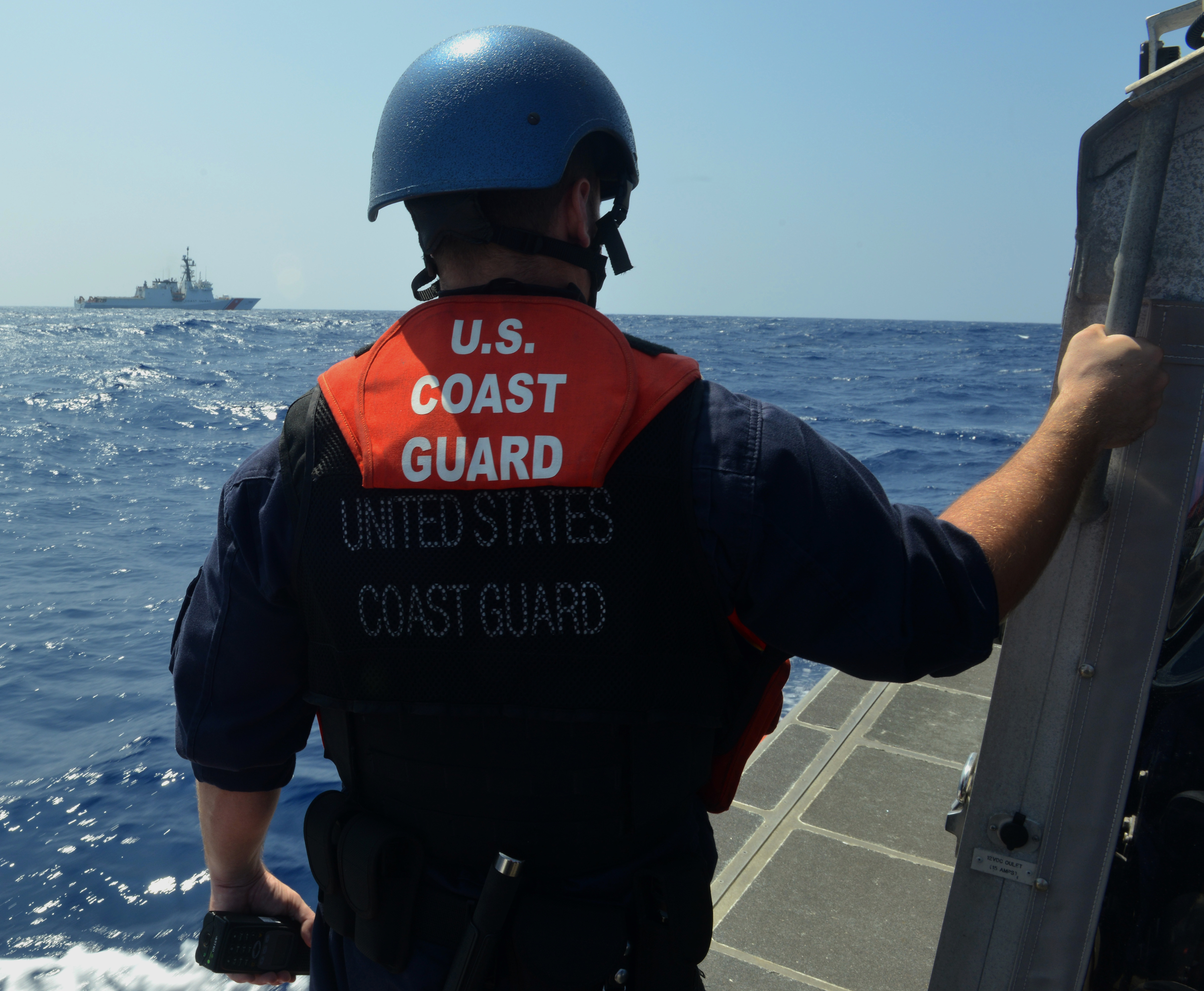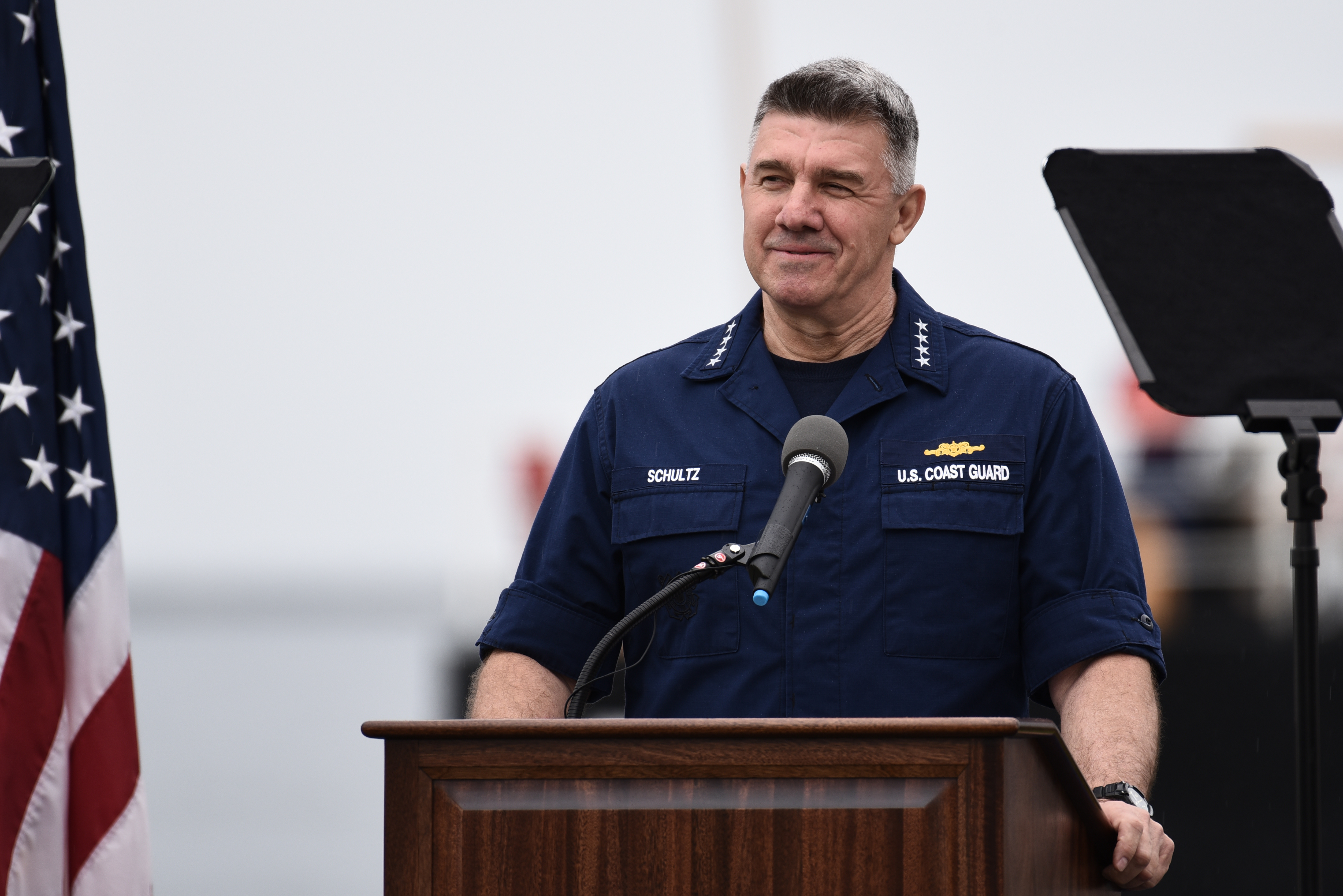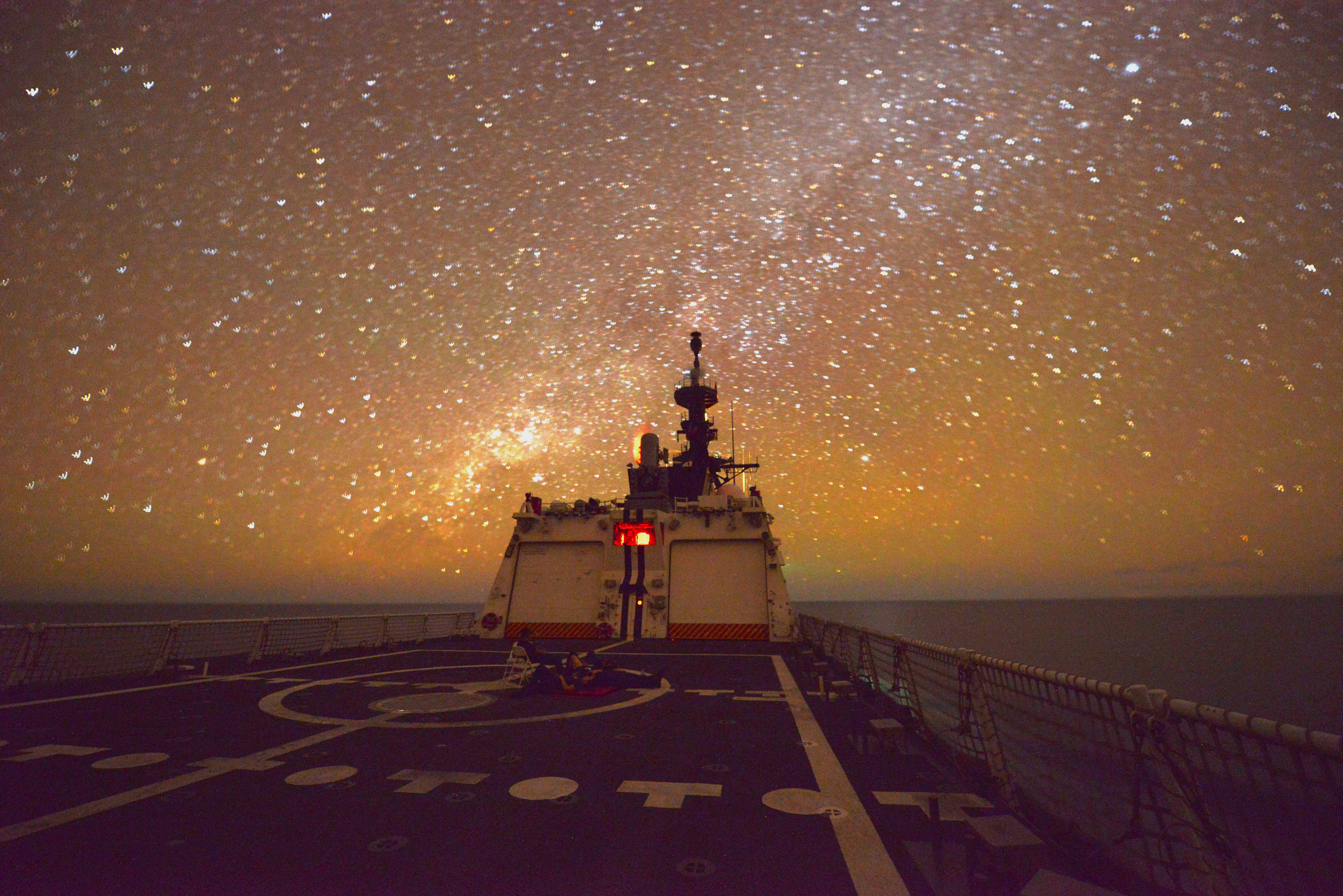
KUALA LUMPUR – The U.S. Coast Guard will increase its presence and deployments to Asia – particularly around Oceania and U.S. Pacific territories – and test out a new operational deployment concept in the region, service head Adm. Karl Schultz told reporters on Thursday.
“My vision for the Coast Guard is to expand our permanent presence and effectiveness in the region through expeditionary capabilities, which is why we are doubling down in Oceania,” he said.
“In the next month, we’ll be deploying Coast Guard assets in a new operating concept to strengthen the community of island nations thorough Operation Aiga – that’s Samoan for ‘family’,” he said.
The operation is a 30-day deployment of a 225-foot Juniper-class buoy tender and a Fast Response Cutter to partner with Pacific island nations. The buoy tender’s presence is a proof-of-concept operation to see if it could function as a mothership to smaller patrol craft. If successful, Schultz said this could be the start of similar operations with partner nations. While he said he believed the Coast Guard will continue to contribute to security and freedom of navigation in the South China Sea and East China Sea, he added that the most suitable way for the Coast Guard to exert influence in the Pacific is to operate at a partner-nation level.

“I anticipate that mothership-type operation with some patrol boats, maybe trying to lash up with Australian partners and New Zealand partners in the region, Japanese partners, really is that international face that offers an alternative to other actors in the region,” he said.
That commitment to capacity-building spans the wide range of its expertise – from transferring old American cutters to partners, to multinational security exercises, to bilateral search-and-rescue and law enforcement agreements, to the deployment of training teams to share technical expertise and build proficiency, he said.
“My goal for the Coast Guard is to be a partner of choice in the region. So, we tailor our services to the needs of the nation we are supporting,” he said.
Schultz said the Coast Guard deployed the National Security Cutters USCGC Bertholf (WMSL-750) and USCGC Stratton (WMSL-752) to the Asia-Pacific and that their deployments and operations were in support of U.S. Indo-Pacific Command.
“Our enduring role is not to replace or duplicate Department of Defense assets or capabilities, but to employ our unique authorities and capabilities to complement Department of Defense forces,” the admiral said.
Additionally, Schultz said in the next two to three years the Coast Guard will be homeporting three Sentinel-class Fast Response Cutters in Guam.
“The addition of the Fast Response Cutters will increase Coast Guard presence throughout the region. Our increased capability and capacity will allow for more frequent and longer patrols to protect the Exclusive Economic Zone from illegal, unregulated and unreported fishing and the threats that those activities bring, and against increasing drug trafficking threats to the region,” Schultz said.

In response to a USNI News question as to whether Coast Guard ships would return to participating in the U.S. Navy CARAT series of exercises in the region, Shultz stated as an example that the Coast Guard has been a continuous participant in the biennial RIMPAC exercises and expects to participate next year again with a National Security Cutter, as was the case in the 2018 RIMPAC.
The Coast Guard commandant was critical of the Chinese Coastguard and its activities in the region. He said, though, that the U.S. would not respond by matching a similar number of USCG ships in the South China Sea but instead would champion transparent engagement.
“In the face of coercive and antagonistic behavior, the United States Coast Guard offers transparent engagement and partnership,” he said. “There’s the Chinese Coast Guard – used to be under civilian authority, it is now through the People’s Military Police, a direct report to the CCP government. You look at the Maritime Militia. I think we are seeing behaviors out of the Chinese Coast Guard, out of the Maritime Militia, that are not consistent with the rule-based order.”
Schultz said that the Coast Guard’s specialized capabilities and expansive international relationships enables the United States to build partner-nation capacity and model the rules-based values and behaviors that the U.S. wants to see in the region.
“Through engagement, partnership and presence, we are a maritime bridge between the Department of Defense’s lethality and the State Department’s diplomacy.”





